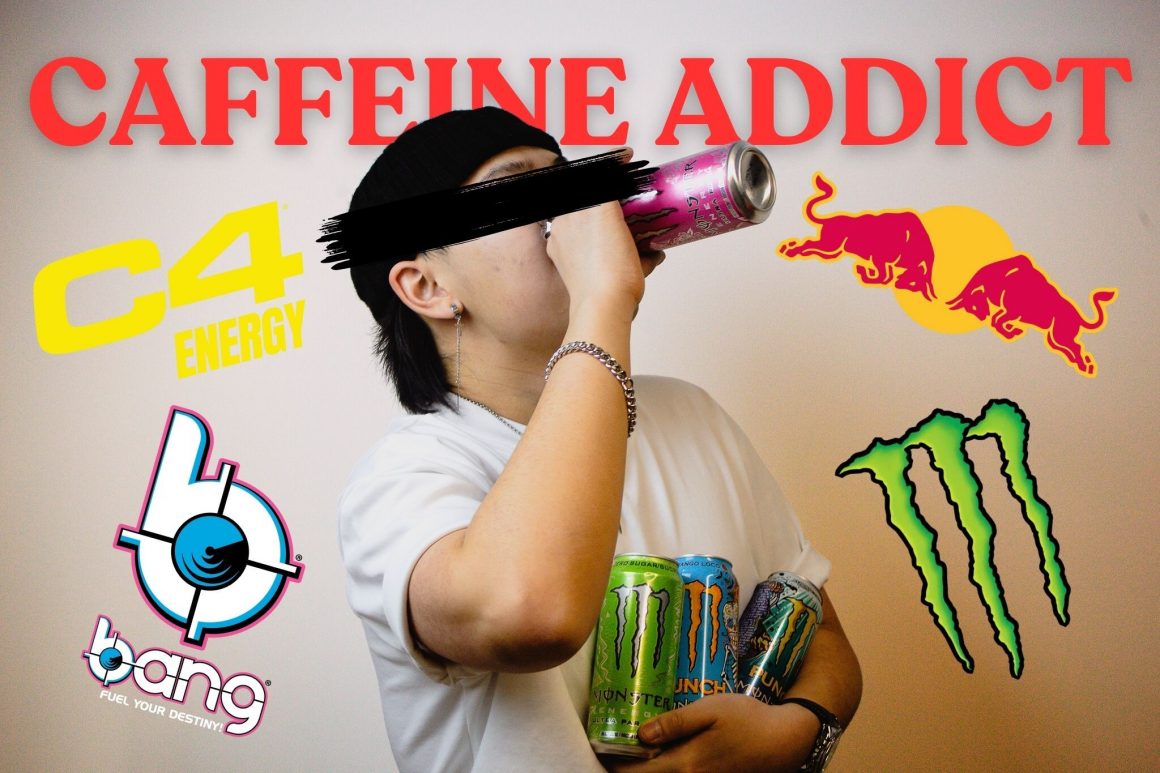
Energy drinks on campus: An overlooked concern regarding students’ health
By Jasmine Keller, February 28 2025—
As a university student, you are associated with many stereotypes—you have an irregular sleep schedule, you skip meals and one of the most common: you consume anything that keeps you going. Energy drink consumption has been on a fast incline to the top of that list in recent years with Red Bull, Monster Energy, C4 and many other variations becoming part of a student’s arsenal for fuel.
In Canada, energy drinks are capped at 180 mg of caffeine per can. This means energy drink companies like Celcius, who would on average have 200 to 270 mg of caffeine per can in the U.S., limit themselves to 180 mg for Canadian consumers. However, don’t let this lower number deter you from the amount of caffeine that’s being consumed per can. 180 mg of caffeine is equivalent to roughly two cups of regular brewed coffee or, roughly, 5 cans of Coke.
To further this point, energy drinks have several negative effects on the body. Starting with dehydration due to their high levels of caffeine and sugar. This increases urine production and causes fluid loss. Dehydration is correlated with other problems including irregular heartbeats, and, in severe instances, even heart failure due to strain on the heart from stimulants. The caffeine and stimulants in these drinks, if overpowering, may result in insomnia while the high sugar content may lead to side effects like increased heart rate, blood pressure, and breathing levels.
The consumption of energy drinks has become normalized to the point where people overlook these harmful effects. When it comes to your well-being, there’s no room for excuses. While energy drinks can be tempting due to their accessibility, taste, and affordability, there are plenty of nutritious alternatives that will benefit your body in the long run. Here are seven healthier alternatives to consider:
Black Tea
Not only is this a cheap option, but black tea tends to have around half the amount of caffeine you find in an average cup of coffee. Black tea is unique as it is the only type of tea that contains theaflavins, a group of polyphenols that lowers blood cholesterol. But you may be wondering, “How will black tea keep me awake if it doesn’t have that much caffeine?” Well, black tea contains an amino acid known as L-theanine, which helps with alertness and focus and promotes a stable and level type of energy.
Vitamin C
Vitamin C plays a vital role in energy production with its steady supply to your muscles. A deficiency in vitamin C can lead to fatigue, irritability and muscle pain. Vitamin C can be most commonly found in citrus fruits like oranges. Additionally; peppers, strawberries, Brussels sprouts, and potatoes also contain high levels of this vitamin. Vitamin C drinks can be purchased in bulk for a decent price at Walmart, Amazon and many other commercial sites.
Yerba Mate
This traditional South American drink has been rising in popularity with its natural caffeine, antioxidants and nutrients. Specifically, yerba mate contains xanthines, a plant compound that acts as a stimulant. With 80 milligrams of caffeine per cup, yerba mate contains around the same amount of caffeine as you would find in a cup of coffee. Yerba mate consumers have claimed that although it enhances your energy level like coffee does, it doesn’t come with jittery side effects.
Green Tea
Green tea contains less caffeine than you would find in a cup of coffee with the same quantity. Not only does green include benefits like a decreased risk of cancer and heart disease, but green tea has also been proven to boost mental performance and improve clarity.
Coconut Water
This natural drink is abundant in minerals, electrolytes and vital vitamins. Dehydration is a root cause of fatigue, and with coconut water being a hydrating drink, it can help you combat fatigue in its simplest way.
Kombucha
This natural fermented tea acts as an energy drink with health benefits. With its iconic fizzy and sour taste, it contains antioxidants, probiotics, and a low level of natural caffeine. Although kombucha can be considered a more expensive buy, it is quite easy to make it at home. As long as you’re willing to wait 1 to 4 weeks for your homemade kombucha, LiveEatLearn has a helpful step-by-step tutorial.
Ginseng
Ginseng is an adaptogenic plant root that can be found in traditional Chinese medicine. Adaptogens can build the body’s resistance to stress while delivering energetic boosts. This can be especially appealing when you’re having to deal with stressful courses and exams. The benefits of ginseng include cognitive enhancement and improved brain function. Additionally, Ginseng can be consumed through oil, capsule, or powder, making it accessible for tea and supplement takers. Ginseng can be purchased at your local Walmart, Shoppers Drug Mart, etc for a reasonable price.
Overall, these energy drink alternatives provide you with the opportunity to prioritize your health while still boosting your energy levels. At the very least, begin paying attention to the amount of caffeine you are consuming when you reach for an energy drink and you’re already taking that first step towards prioritizing your health.
